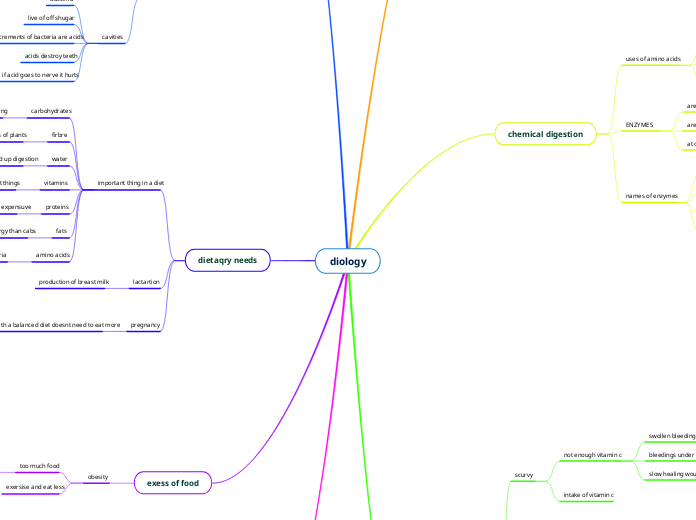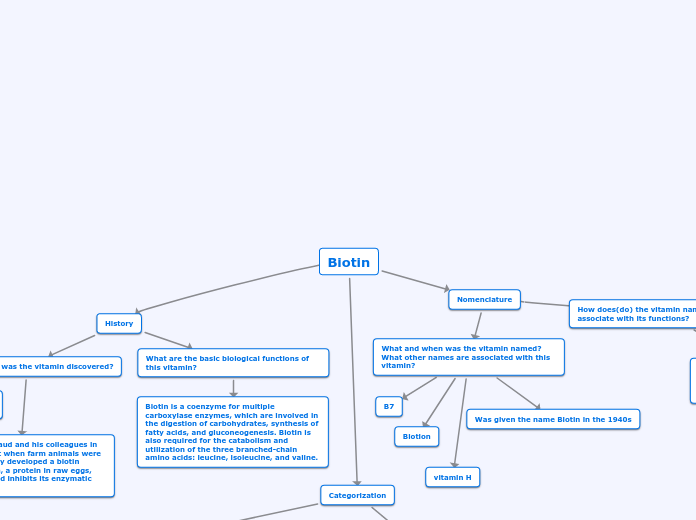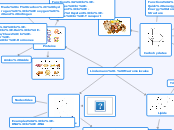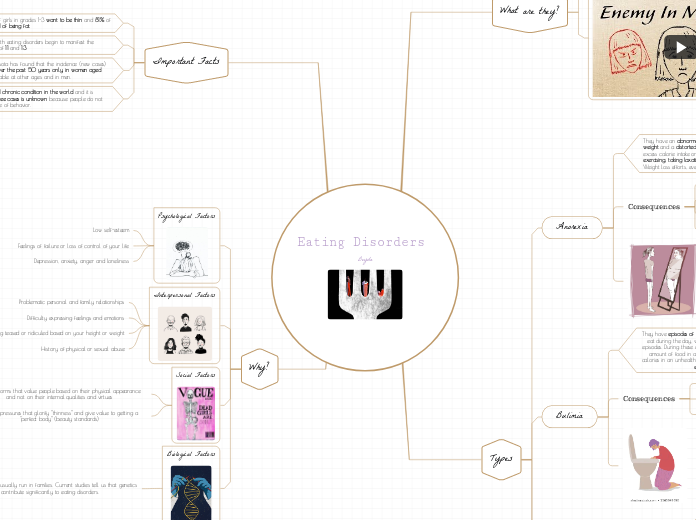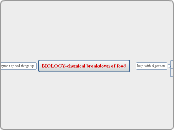diology
cholera
water for rehidration
antiboticum to kill baceria
caused by bacteria vibrio cholerae
found in dirty water and unwasheds frut and vegetables
severe diarhorrea
exess of food
obesity
exersise and eat less
too much food
get fat
dietaqry needs
pregnancy
a woman with a balanced diet doesnt need to eat more
if there isnt enough protein then
intake of
calcium
folic acid
iron
lactartion
production of breast milk
important thing in a diet
amino acids
fats
twice as much energy than cabs
proteins
give as much energy as carbs but expensuve
vitamins
for many different things
water
to loosen up food particles and speed up digestion
firbre
is found in cell walls of plants
body cant digest it
it land in the alimentary canal undigested
softens faeces to prevent diarhorrea
carbohydrates
cheapest energy giving
meost common
mechanical digestion
teeth
cavities
if acid goes to nerve it hurts
acids destroy teeth
excrements of bacteria are acids
live of off shugar
bacteria
thpes of teeth
canines
molars
premolars
incisors
bile
acts like detergent on bacteria
bile pigments are formed by break down
of haemoglobin
green because pile pigments
bile salts
increase surface area for enzymes
physically break down fats
Physically breaking down food
malnutrition
rickets
intake of calcium and vitamin d
not enough vitamin d
Not enough calcium in the bones
o like legs
defiency of iron
not enough red blood cells
irritable
weak
tied
constipation
not enough fibre
stool is too hard for the anus
kuashiokor
intake of protein
mother is leaned on a too starchy
diet
dry skin
blaoted belly
swollen anchels
starvation
eat
not enough food
bloated belly
stunted grows
loss of muscle mass
marasmus
take in of carbs and proteins
not enough carbohydrates and proteins
no muskles
old persons face
wrinkled skin
thin skin
scurvy
intake of vitamin c
not enough vitamin c
slow healing wounds
bleedings under the skin
swollen bleeding gums
chemical digestion
names of enzymes
lipase
amylase
trypsin
pepsin
ENZYMES
at over 40 degrees C they denature
are specific
are proteins
uses of amino acids
cause low ph microoganisms
cannot reproduce
create perfect Ph for pepsin
kill bacteria
body
hw to call how stuff in the body works
egestion
stool goes out of the anus
absorbtion
food particles directly into blood
ingestion
food in mouth chew and swallow
pancreas
salivary glands
gallbladder
liver
tounge
duodenum
oesphagus
